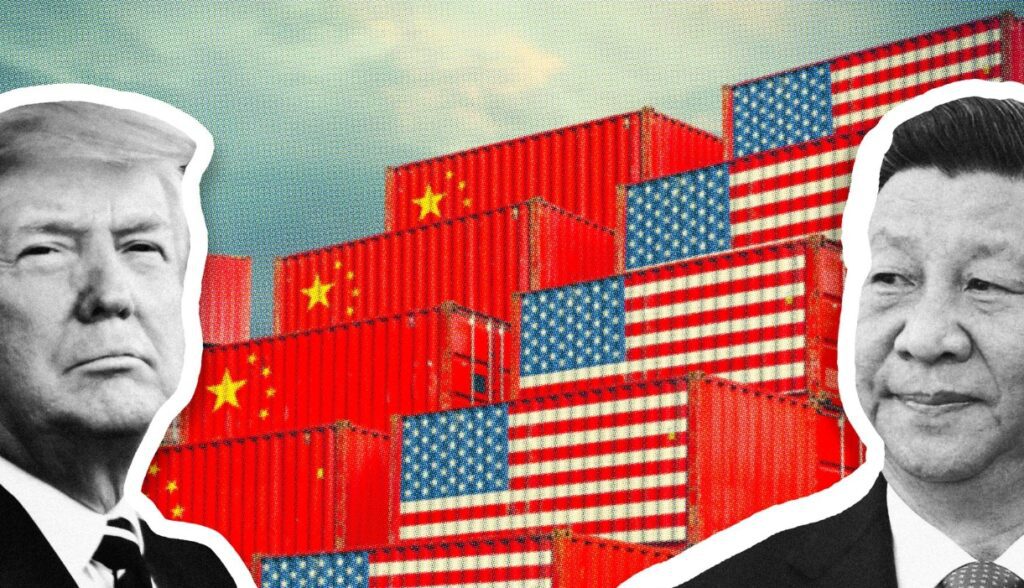Asian Stock Markets Decline Amid US Tariff Pressures

Asian stock markets experienced their most significant drop in three weeks following US President Donald Trump’s announcement of impending tariffs on Canada and Mexico, as well as restrictions on Chinese investments. Investors have reacted by pulling back, leading to a decrease in risk appetite across the region.
Market Reactions Across Asia
Equity shares saw declines throughout Asia, with Japan, Taiwan, and Hong Kong facing some of the largest drops. In the bond market, Treasury 10-year yields fell by three basis points to 4.4% during Asian trading hours. Meanwhile, gold prices surged to an all-time high, driven by increased demand for safe assets. Cryptocurrencies, including Bitcoin, commonly associated with “Trump trades,” also saw declines along with other digital currencies.
Trump’s Stance on Tariffs and Chinese Investments
President Trump indicated that the tariffs set to impact Canada and Mexico next month were “on time” and progressing rapidly, despite an earlier delay. Additionally, the market sentiment deteriorated as he urged a government committee to limit Chinese investments in technology, energy, and other crucial American sectors, adding layers of uncertainty for investors.
Investor Sentiment and Market Uncertainty

Jessica Jones, head of Asia at PGIM Investments, expressed in a Bloomberg TV interview that “there’s just so much uncertainty in the market,” complicating it for Asian investors to gauge the ultimate consequences. The potential for either increased inflation or a slowdown in economic growth remains unclear, leaving the market in a state of ambivalence.
US Policies Impacting Chinese Technologies
The Trump administration deepened its divide with international allies over Ukraine by retracting US condemnation of Russia’s invasion during discussions with the United Nations and G7 countries, potentially complicating geopolitical dynamics. Additionally, Trump officials are developing stricter semiconductor restrictions, testing the resilience of Chinese technology shares which had previously surged in optimism following a meeting between President Xi Jinping and corporate leaders.
Recent Meetings and Future Implications

Recent discussions between US officials and their Japanese and Dutch counterparts have focused on restricting engineers from Tokyo Electron Ltd. and ASML Holding NV from servicing semiconductor equipment in China. Recent moves aimed at a more proactive approach from the Committee on Foreign Investment in the United States (CFIUS) highlight plans to scrutinize foreign acquisitions in the US more rigorously, targeting investments from China specifically.

The Potential Impact on Supply Chains

Charu Chanana, chief investment strategist at Saxo Markets Pte, noted that if these orders come into force, there is a risk of disruption to AI supply chains. However, she added that the Trump administration has implemented several such directives since taking office, which appear to be designed to strengthen negotiating leverage rather than leading to immediate outcomes.
Conclusion: Navigating Tumultuous Market
The turmoil in Asian stock markets, influenced heavily by US tariff strategies and geopolitical tensions, signals a challenging environment for investors. As market dynamics continue to evolve under the Trump administration’s policies, understanding the broader implications on global trade and economic stability will be critical for market participants. Investors will need to navigate these uncertainties carefully to safeguard their portfolios in an increasingly complex global landscape.



